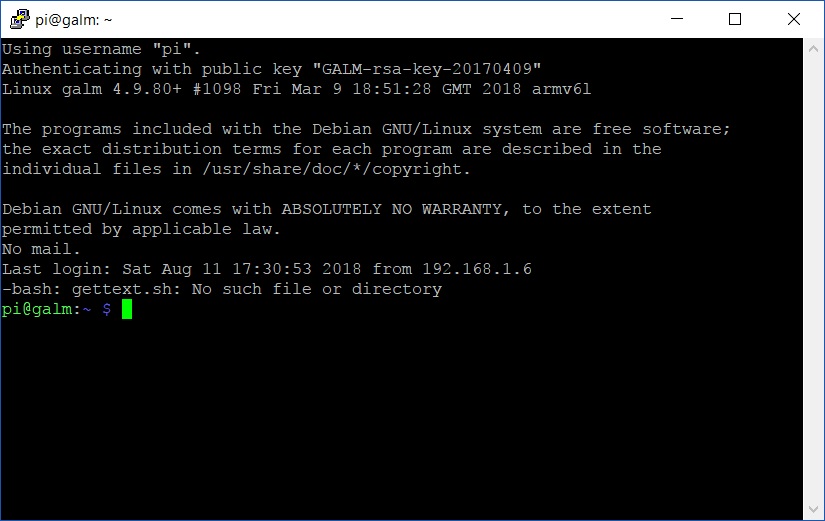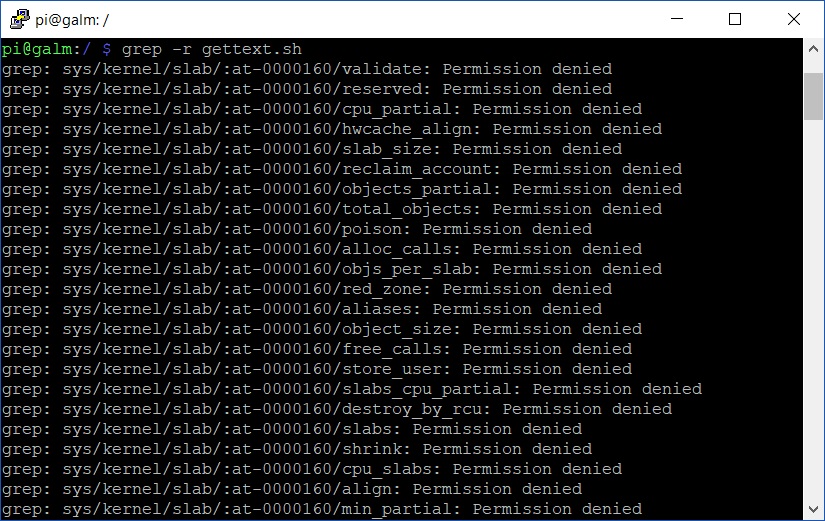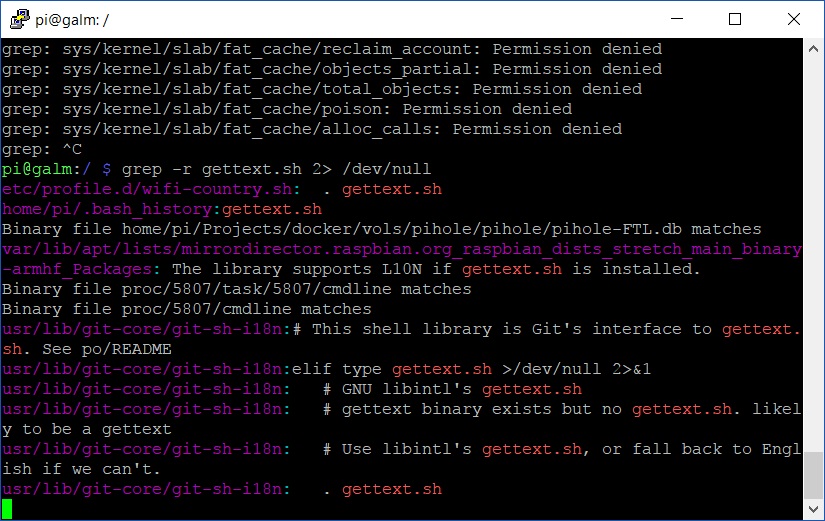Finding a string across an entire filesystem in Linux
Table of Contents
After coming back from a extra long holiday and noting that I hadn’t received any monitor tweets in a while from my Raspberry Pi, I thought it was a good time to login and make sure everything was running as before. Sadly, it wasn’t even getting an address on my home network. Once I had nutted out a few issues (more to come in future posts), I saw there was a script that wasn’t correctly running at startup.

This ‘gettext.sh’ script was not familiar to me and had me concerned. My first thoughts ran to my rc.local file in /etc/ but that the contents was unchanged. Next I inspected all my
cron tabs but once again, nothing out of the ordinary. How would I track down this mysterious script file?
Enter grep #
For those of you new to Linux distributions; grep is a fabulous tool that allows you to search the contents of data for strings in any variety. Very powerful when you combine it with other tools such as cat to output the contents of files like for example, log files.
Usage is simple;
grep stringthatIamlookingforward /location/to/search/in
So how would I find this elusive script file when it could be anywhere on the file system of my Raspberry Pi? First, because I want to search the entire file system, we should navigate to the root of said file system;
cd /
Now we can use grep to find the bugger!
grep gettext.sh
But hang on, nothing is happening. That is because grep is a processor of input and thus expects to be fed. So what happens if we explicitly specify the root of the file system, ’/’ ? Well, you’ll be reminded that ’/’ is a directory and not a file. So how do we feed grep the entire file system? Well, tell it to search recursively with the -r switch like so;
grep -r gettext.sh
But I must warn you, if you do that, the majority of your result will be

That is far too much noise when finding a needle in the digital haystack. Sure, we could run the search under sudo but as the script failure appears at logon it surely must exist in userspace land. Lets take a lesson from all the way back in the early days of
scripting cryptocurrency miners to start on boot and send the ‘standard error output’ ala 2> out to the blackhole of /dev/null. Thus, the final one liner will look like this;
grep -r gettext.sh 2> /dev/null

Now these are results I can work with. Off to chase this rabbit into Wonderland…

